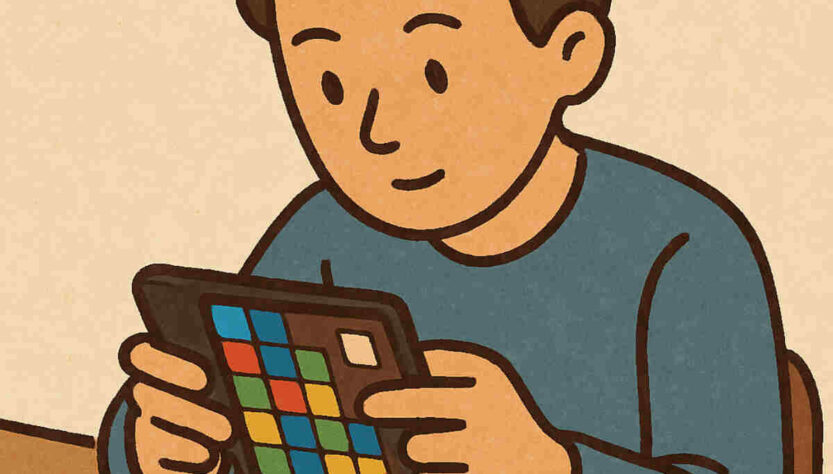Playing games is often seen as a leisurely activity reserved for kids or a way to unwind after a long day. However, what if I told you that integrating gaming into your daily routine can actually be beneficial, not just for relaxation, but also for enhancing your cognitive abilities and creative skills? Let’s dive into the myriad benefits of playing games daily and why you might want to add a little bit of play to your day. To learn more, check out flatrockmusicfestival.com
When you play games, especially those that require strategic thinking or problem-solving, like puzzles or strategy games, you’re giving your brain a workout. These types of games can help improve memory, attention span, and even your ability to multitask. Whether you’re navigating a complex storyline in a role-playing game or solving a tricky puzzle, you’re challenging your brain to think critically and creatively.
Improve Memory
Engaging in games that demand memorization, such as memory match games or complex strategy games, can significantly improve your memory. These games force you to remember patterns, sequences, and strategies, which translates into better memory recall in real-life situations. Over time, this mental exercise strengthens neural connections, making it easier to store and retrieve information.
Increase Attention Span
Many games require sustained concentration and focus, which can help enhance your attention span. When you are absorbed in a game, you learn to filter out distractions and maintain focus on the task at hand. This practice can be particularly beneficial in a world filled with constant notifications and interruptions.
Enhance Multitasking Abilities
Certain games, especially real-time strategy or action games, require players to keep track of multiple elements simultaneously. This can improve your ability to multitask in everyday life. By practicing this skill in a gaming environment, you become better at juggling various tasks and responsibilities without becoming overwhelmed.
Enhance Your Problem-Solving Skills
Games often present players with challenges or obstacles that require innovative solutions. This can translate to improved problem-solving skills in real life. When you’re faced with a difficult decision or a complex task at work, the skills you develop through gaming can help you approach the problem with a fresh perspective and a creative mindset.
Develop Strategic Thinking
Games that require strategic planning encourage players to think several steps ahead. This strategic thinking is not just useful in games but also in real-life scenarios, such as project management or planning personal goals. Developing this skill can lead to more efficient and effective decision-making.
Foster Analytical Skills
In many games, players must analyze situations and make quick decisions based on available information. This process enhances your analytical skills, allowing you to evaluate data and scenarios more effectively in real-world situations. Whether it’s analyzing a market trend or troubleshooting a problem, these skills are invaluable.
Encourage Adaptability
Games often throw unexpected challenges at players, requiring them to adapt quickly to new situations. This adaptability is a crucial skill in today’s fast-paced world, where change is constant. By learning to adjust your strategies in a game, you become more flexible and open to change in other areas of life.
Unleash Your Creativity
Games are a fantastic outlet for creativity, offering endless opportunities to explore new worlds, characters, and stories. This can be particularly beneficial for aspiring novelists and content marketers who need to develop engaging narratives and content. By immersing yourself in diverse gaming environments, you can draw inspiration for your own storytelling and content creation endeavors.
Explore New Worlds
Games often transport players to fantastical worlds filled with unique landscapes and cultures. This exposure to different environments can spark your imagination and inspire creativity in your own projects. Whether you’re designing a new product or writing a novel, these experiences can provide fresh perspectives and ideas.
Create Unique Characters
Developing characters in games can enhance your ability to create compelling and relatable characters in your own stories. By experiencing diverse personalities and backgrounds in games, you learn how to craft characters with depth and complexity. This skill is invaluable for writers and marketers who want to connect with their audiences on a personal level.
Craft Engaging Narratives
Many games feature intricate storylines that captivate players and keep them engaged. By studying these narratives, you can learn how to structure your own stories in a way that captures and maintains your audience’s attention. This ability to tell compelling stories is crucial for anyone involved in content creation or storytelling.
Improve Your Social Skills
Playing games doesn’t have to be a solitary activity. Many games offer multiplayer options that encourage social interaction, teamwork, and communication. Whether you’re strategizing with a team in an online multiplayer game or negotiating trades in a board game, these interactions can help you hone your social skills.
Enhance Teamwork
Games that require teamwork encourage players to collaborate and communicate effectively. These skills are directly applicable to professional and personal relationships, where working well with others is essential. By practicing teamwork in games, you develop the ability to work harmoniously in group settings.
Strengthen Communication
Effective communication is key in multiplayer games, where players must coordinate strategies and share information. This practice can improve your communication skills in real life, making you a more effective communicator in both professional and personal contexts. Clear and concise communication is a valuable asset in any situation.
Build Stronger Connections
Participating in games with others can strengthen relationships and foster a sense of community. For graduate students who often work independently, gaming can be a way to connect with peers and collaborate on shared goals, providing a much-needed social outlet. These connections can lead to lasting friendships and professional networking opportunities.
Reduce Stress and Boost Mood

Life can be stressful, and finding ways to relax and unwind is essential. Gaming can be a great way to escape reality for a while and engage in an activity that brings joy and relaxation. By playing games that you enjoy, you can effectively reduce stress and improve your overall mood.
Provide a Mental Escape
Games offer an opportunity to escape the pressures of daily life by immersing yourself in a different world. This mental break can help you recharge and return to your responsibilities with a clearer mind and renewed energy. It’s a chance to step away from stressors and enjoy a moment of relaxation.
Elevate Mood
Playing games releases endorphins, which can elevate your mood and promote feelings of happiness and satisfaction. Whether you’re achieving a high score or completing a challenging level, these small victories can boost your self-esteem and improve your overall emotional well-being.
Offer a Sense of Accomplishment
Completing tasks and achieving goals in games can provide a sense of accomplishment and satisfaction. This feeling of achievement can carry over into your daily life, motivating you to pursue and reach your personal and professional goals. Recognizing your progress in games can inspire you to tackle challenges with confidence.
Practical Tips for Integrating Gaming into Your Daily Routine
Now that you’re aware of the benefits, you might be wondering how to incorporate gaming into your daily life without it becoming a distraction. Here are some practical tips to help you get started:
Set a Time Limit
Like any activity, moderation is key. Set a specific time each day for gaming, whether it’s 30 minutes after dinner or an hour before bed. This will help you enjoy the benefits of gaming without letting it interfere with your responsibilities. Maintaining a schedule ensures that gaming complements your routine rather than disrupting it.
Choose Games That Challenge You
While it’s important to have fun, try to choose games that offer some level of challenge or require strategic thinking. This will ensure that you’re reaping the cognitive benefits of gaming. Opt for games that push your mental limits and encourage you to think critically and creatively.
Make It a Social Activity
Invite friends or family to join you in gaming sessions. This can enhance the social benefits of gaming and make the experience more enjoyable. Sharing the experience with others can lead to stronger bonds and create lasting memories, making gaming a shared activity rather than a solitary one.
Balance Gaming with Other Activities
Ensure that gaming is just one part of a balanced lifestyle. Combine it with physical activity, social interactions, and other hobbies to maintain a healthy, well-rounded routine. This balance ensures that you enjoy the benefits of gaming while still engaging in a variety of fulfilling activities.
Conclusion
Playing games daily is more than just a pastime; it’s an opportunity to enhance your cognitive abilities, boost creativity, and improve social skills. Whether you’re an aspiring novelist seeking inspiration, a content marketer looking to engage your audience, or a graduate student aiming to simplify complex ideas, gaming can provide valuable benefits that extend beyond entertainment. So, why not add a little play to your day and discover the positive impact it can have on your life? Embrace gaming as a beneficial component of your daily routine and unlock a world of potential.
